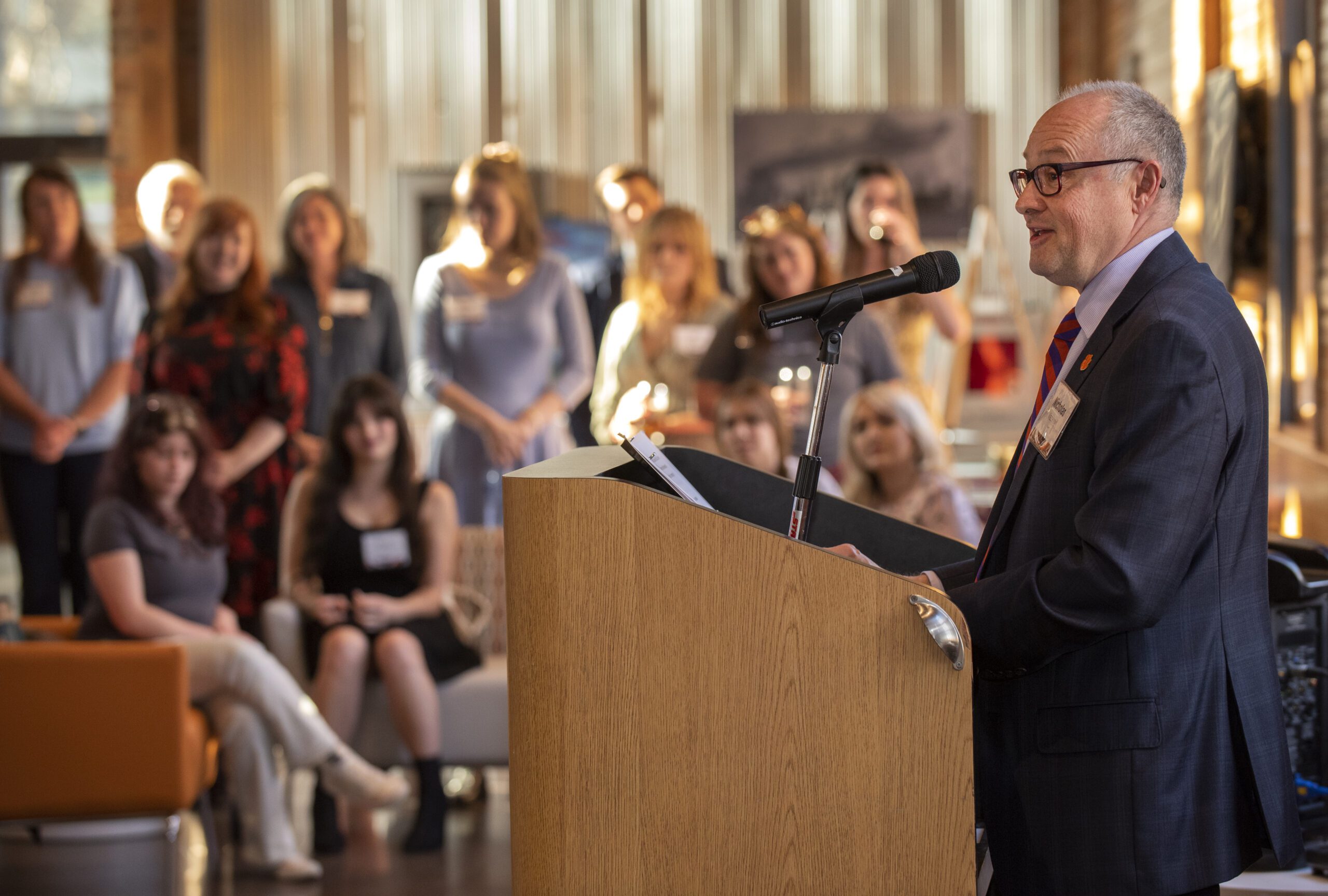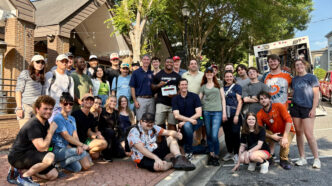Our Four Pillars, Part Two: Pre-Law
Dear Faculty, Staff, Alumni and Friends,
Back in October of last year, I introduced the idea that our new College will build its programs around four pillars. In the October column, I discussed the first of these: writing.
Our second pillar is “Pre-Law.”
Conducive majors
There is no set path to law school and a career in law, but certain undergraduate majors are better able to prepare students for higher performance on the LSAT (Law School Admissions Test) and equip them to excel in legal studies.
The American Bar Association (ABA) suggests that the “traditional” majors considered appropriate for law school preparation include “history, English, philosophy, political science, economics or business,” and it encourages students to “pursue an area of study that interests and challenges while taking advantage of opportunities to develop research and writing skills.” Most of our College’s majors emphasize the skills that are essential to master for a career in law: problem-solving, critical reading, writing and editing, oral communication and listening, and analytical research.
In addition to being the institutional home for several majors that are conducive to a career in law, our College has recently launched areas of concentration that are specifically intended to bolster our pre-law profile.
Legal studies concentrations
The Department of Philosophy and Religion recently started a Law, Liberty and Justice emphasis for philosophy majors, intended primarily for pre-law students. In addition to the core classes in ancient and modern philosophy, students take classes in moral philosophy, social and political philosophy and philosophy of law. A pre-law internship is advised, and the department works with students to arrange it.
Not to be outdone, last year, the Department of History and Geography launched its own Legal History emphasis for history majors. Their program examines the United States legal system and its relationship to society through a selection of history, philosophy and political science courses that explore the development of the law and justice system, legal theory and American constitutional law, among other topics.
I am delighted to say that both the Department of Philosophy and Religions and the Department of History and Geography are each currently searching nationally for new faculty members to join their respective law programs next Fall. Stay tuned for introductions!
Beyond the classroom
We also offer beyond-the-classroom opportunities for pre-law students, including moot court and mock trial coached by Cary Kaye, a lecturer in the Department of Philosophy. Last semester, responding to student requests, the College increased the funding for mock trial so that our teams could be more competitive nationally. And for those interested in a community of pre-law students to interact with in a non-competitive environment, Clemson hosts the William T. Howell Pre-Law Society.
In addition to academic programs, our College recently hired Clemson’s only pre-law advisor, Tim Garrison. Tim is a Clemson alumnus with a J.D. from the University of Georgia, and he has both practiced and taught law.
Our pre-law focus extends to our Humanities Hub as well. On March 7, the Humanities Hub will present its annual “Lectures in Law and Humanities” series, sponsored by Chris Loebsack of Loebsack & Brownlee, PLLC. Last year, Ray Hinton, who was freed from prison in 2015 after 30 years on death row, spoke about his experiences to a spellbound audience, many of whom were in tears by the end of his presentation. This Spring, the series will focus on the important topic of domestic violence.
Our new College is positioned to give more support for pre-law students than ever. If you happen to be one of our many alumni working in the legal profession and have feedback or opportunities for our pre-law students, please don’t hesitate to give Tim or me a call.
Go Tigers!
Nicholas Vazsonyi, Dean
College of Arts and Humanities
Follow Dean Vazsonyi on Instagram.







